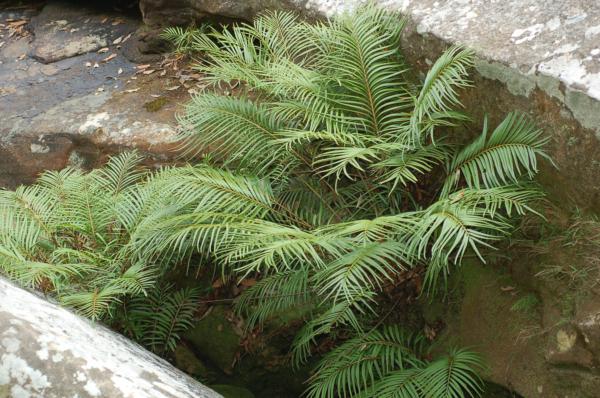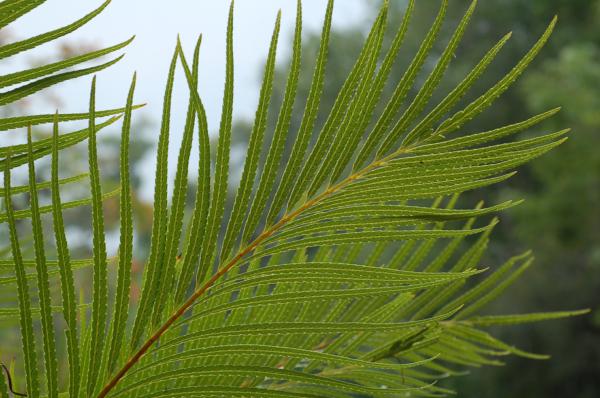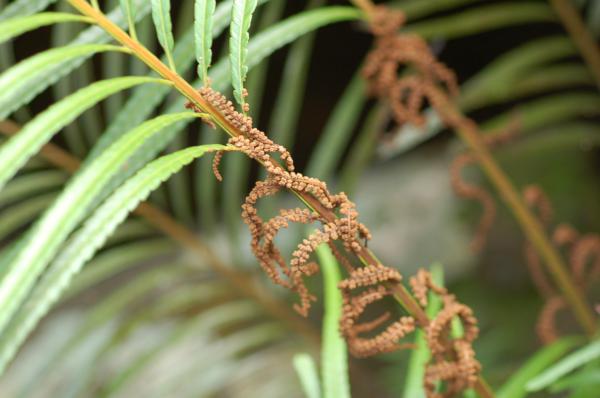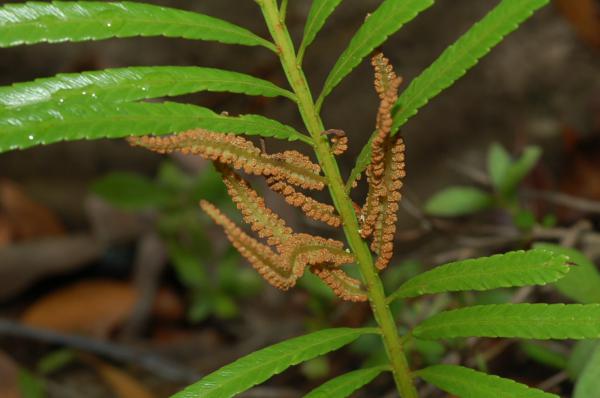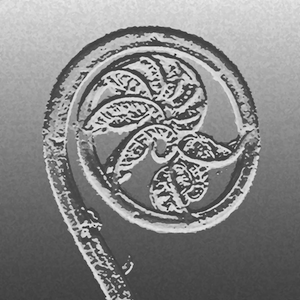
Osmunda angustifolia Ching
Family
Osmundaceae
Nomenclature
Osmunda angustifolia Ching, Acta Phytotax. Sin. 8: 131, 160, f. 10. 1959; Fl. Reipubl. Popularis Sin. 2: 84. 1959; Tagawa & K.Iwats. SouthE. Asian Stud. 5: 34. 1967; Tagawa & K.Iwats., Fl. Thailand 3: 45. 1979; Boonkerd & Pollawatn, Pterid. Thailand: 31, 77. 2000.
Description
Fronds congested at apex of rhizome. Stipes stramineous, short, up to 25 cm long; laminae pinnate with a distinct apical pinna, moderately acute at apex, a few pairs of basal pinnae slightly shortened; lateral pinnae linear, gradually narrowing both towards acute apex and towards shortly stalked base, less than 15 cm long, 1.2 cm broad, the margin slightly waved, the sinus usually less than 1 mm in depth; the veins two or three times dichotomously branching; texture papyraceous to softly coriaceous, fresh green in colour; a few middle pinnae fertile, contracted , brown after shedding the spores.
Distribution in Thailand
NORTH-EASTERN: Phetchabun, Loei; SOUTH-EASTERN: Trat.
Distribution in Laos
Vientiane.
Wider Distribution
Hainan, Hongkong, China (Guangdong) and Taiwan (?)
Ecology
On sandy banks or on wet rocks usually along streams in dense forest or in half shaded areas at medium altitude.
Proposed IUCN Conservation Assessment
Least Concern (LC). This species is widespread and not under any known threat.
Voucher specimens - Laos
Munzinger 78, Vientiane, Montagne du Boeuf sacre (P).
Habit
Sterile pinnae
Fertile pinnae
Sterile and fertile pinnae
Site hosted by the Royal Botanic Garden Edinburgh. Content managed by Stuart Lindsay, Gardens by the Bay, Singapore and David Middleton, Singapore Botanic Gardens. Last updated 24 January 2012
